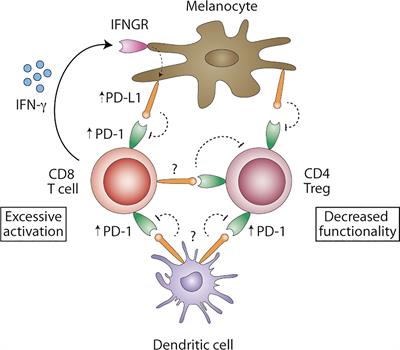EDITORIAL
Published on 24 Jun 2021
Editorial: Immunology of Vitiligo
doi 10.3389/fimmu.2021.711080
- 4,600 views
- 13 citations
28k
Total downloads
100k
Total views and downloads
You will be redirected to our submission process.
EDITORIAL
Published on 24 Jun 2021
MINI REVIEW
Published on 14 Apr 2021

ORIGINAL RESEARCH
Published on 10 Mar 2021

ORIGINAL RESEARCH
Published on 05 Mar 2021

REVIEW
Published on 02 Mar 2021

REVIEW
Published on 26 Feb 2021

MINI REVIEW
Published on 04 Feb 2021

ORIGINAL RESEARCH
Published on 15 Dec 2020

ORIGINAL RESEARCH
Published on 01 Dec 2020

MINI REVIEW
Published on 06 Nov 2020

MINI REVIEW
Published on 27 Oct 2020

